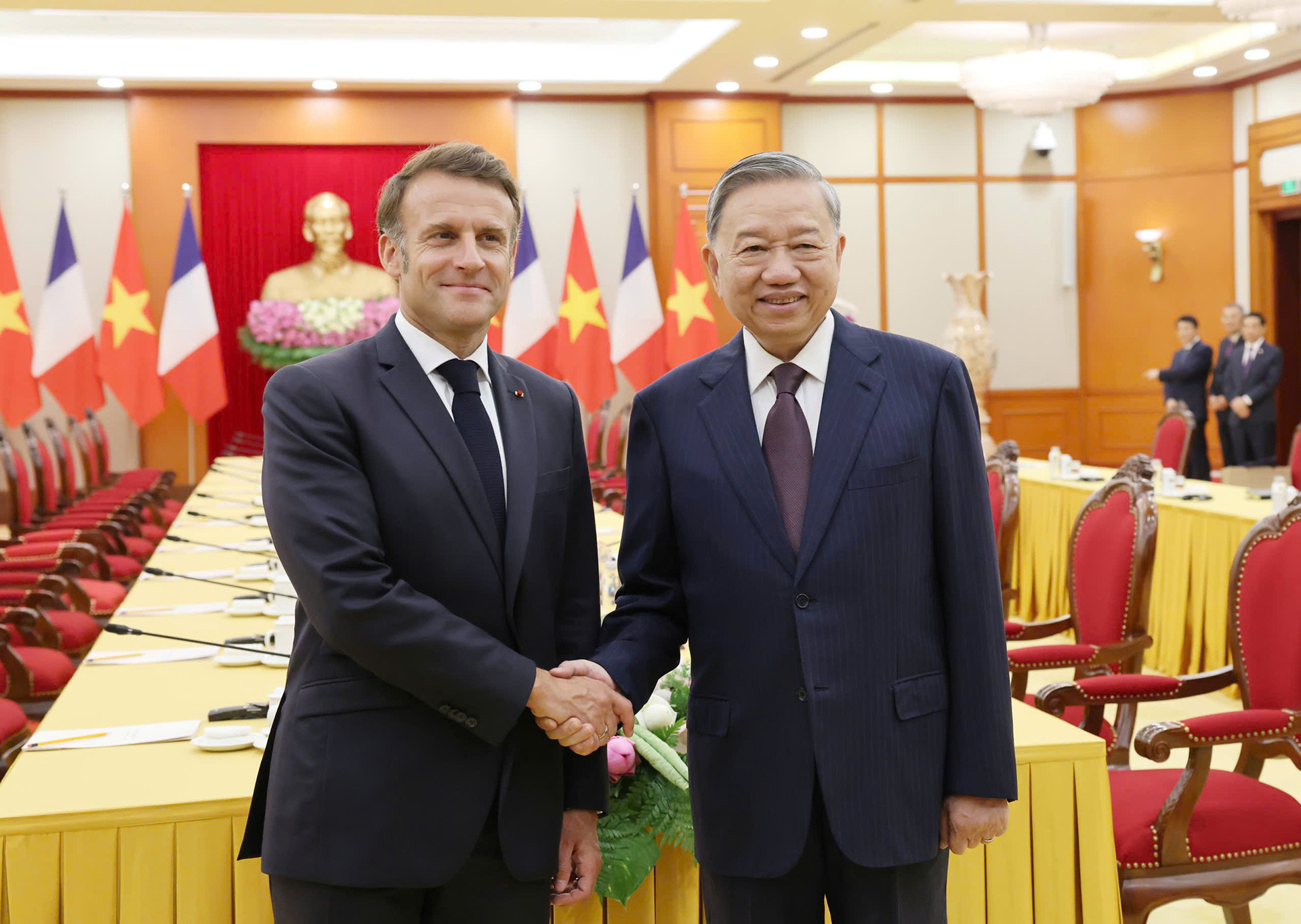
Following French President Emmanuel Macron’s visit to Vietnam on May 25-27, 2025, Professor Nguyen Duc Khuong, Executive Director of the Léonardo de Vinci Business School and President of AVSE Global, and former member of the Economic Advisory Group of Vietnamese Prime Minister Nguyen Xuan Phuc, spoke with VietNamNet about his insights on the strategic vision for Vietnam-France relations. As a prominent Vietnamese scholar with influence in French and international intellectual communities, he offers a unique perspective.
You’ve lived and worked in France for many years, serving as a bridge for the global Vietnamese intellectual community. Why is President Emmanuel Macron’s visit to Vietnam special for bilateral relations?
President Macron’s visit to Vietnam carries high symbolic value. Over a century ago, Ho Chi Minh traveled to France to seek a path for national liberation; today, Vietnam collaborates with France as an independent nation with a respected role and voice in the international community.
France doesn’t have many comprehensive strategic partners in Asia, and Vietnam is among the few partners, reflecting not only mutual trust but also strategic alignment. Both nations aim to assert their roles in a multipolar world through cooperation in economics, investment, education, healthcare, science, and especially culture, whch are the most enduring soft foundations.
Two strategic gateways
You’ve emphasized that “Vietnam is France’s gateway to Asia, while France is Vietnam’s gateway to Europe.” Could you please elaborate on this vision?
This is a balanced, strategic two-way relationship. Vietnam, at the heart of Southeast Asia, is a hub for global supply chains and maintains close ties with Northeast Asian nations like China, Japan, and South Korea, while enjoying goodwill in Africa. France is a central link in the EU’s strategy and governance.
Both nations are seeking partners who share a vision for sustainable development. France aims to reposition itself in the Indo-Pacific amid post-Brexit dynamics and ongoing US-China strategic tensions. The global context has become noteworthy, with the US considering high tariffs on Asian nations, including Vietnam, and threatening up to 50 percent tariffs on European goods.
France also seeks to regain influence in Africa, where Vietnam is respected. Vietnam plays an increasingly important role in global supply chains with investor-friendly policies.
Meanwhile, Vietnam can leverage France to access the choosy European market and it wishes to collaborate in fields vital for its rise.
Looking back at history, we can see that Ho Chi Minh had an open view of French culture and people. French people love freedom, democracy, and are very supportive of peace and human civilization, so they supported and helped him a lot during his years of working here. The French people have many cultural similarities with the Vietnamese people. France is also one of the countries that actively urged the US to lift the embargo against Vietnam.
Understanding French culture and people, Vietnamese leaders, including the late PM Vo Van Kiet, chose France as one of the first countries to make friends.
Today, both nations aim for a win-win strategic partnership, viewing each other as gateways not just for trade but for intercontinental connectivity. Imagine a cooperative axis: Vietnam-ASEAN-France-EU-Africa, and logistics, agriculture, healthcare, education, high-tech, and renewable energy all can develop in the chain.
The cooperation is considered very promising, but two-way trade is still around $5 billion. What is the reason, then?
There is a little story I once heard from a foreign friend, very thoughtful. He said that he had been to many countries, but nowhere had people as friendly as Vietnam.
Vietnamese people are exceptionally friendly, open, and willing to share. Meanwhile, the French do not open up easily at first contact. They need time to understand, to trust, and once they trust, they will become deeply attached and wholeheartedly helpful. They do not like quick, superficial relationships.
This is reflected in the business culture. French companies are very serious and strict in adhering to the principles of social responsibility - from the environment to transparent governance to human rights. They evaluate a project not only based on the investment return but also the long-term impact on the community and the environment. What is not allowed in France, such as prohibitions about using laborers overtime and activites causing pollution, isn’t applied in other countries.
This approach could be a reason why many potential French projects still cannot be implemented in Vietnam.
... to be continued
Thanh Hue - Pham Hai